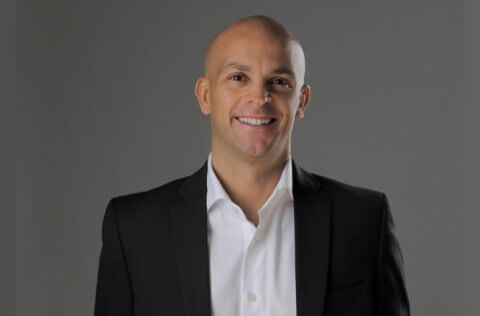CNME Editor Mark Forker spoke to Ahmed Seleem, VP, META at Nexthink, to learn more about how the AI-native company is empowering employees through the unique capabilities of its DEX platform, how it is tackling the issue of legacy for businesses across the region – and what trends does he see emerging in our ever-evolving work from anywhere world.

Ahmed Seleem has firmly established himself as a prominent sales leader in the technology industry across the Middle East ecosystem.
Seleem began his career at global telecommunications provider Orange Business Services, before joining Nexthink as a Senior Presales Consultant in 2011.
In the 14 years that have elapsed since he joined Nexthink, Seleem has mirrored the trajectory and growth of the company on a professional level, and is now the Vice-President of the Middle East, Turkey and Africa.
There are few better placed to articulate the journey of Nexthink over the last 15 years than Seleem, and that’s where our conversation started, at the beginning.
Seleem said that the company has undergone several transformations since it was formed in 2004.
“Nexthink was born out of AI research in Switzerland back in 2004, and we’re very proud that we are an AI-native company. Fast-forward 20 years from the inception of the company, and everyone in the world is talking about AI, and are looking at ways in which they can harness the capabilities and potential of AI. We are pioneers in AI, but it’s fair to say that the company has undergone different cycles of innovations and phases throughout its existence. However, under the leadership of our CEO Pedro Bados, we have now firmly established our identity as a company that is a market leader in digital employee experience,” said Seleem.
Seleem said that the foundations of the company were steeped in AI research that was focused acutely on security and behaviour analytics.
However, as a company that has been customer-centric from the start, Seleem outlined how they broadened their perspective towards following consultations with their customers.
“As much as we are pioneers and thought leaders, we also align our vision to our partners and customers. In the early days, many believed that because our technology is employee centric, our business proposition could be very valuable in areas like IT service management, digital transformation and cost optimisation. Our evolution as a company was always influenced by conversations with our customers, we hear them, align our visions and we act on it,” said Seleem.
Seleem also highlighted that the shift from an on-prem to a SaaS model over the last few years also influenced their strategy.
“There has been a myriad of technology companies that have made that transition from on-prem to a software-as-a-service (SaaS) model and that unlocked a lot of hyper growth in new features and capabilities of the products, and Nexthink was one of the first companies in that domain to focus on a SaaS model and that also provided us with the opportunity to embed AI into our product portfolio and continue to grow,” said Seleem.
Seleem said that when he was hired in 2011, the company was very much still in the start-up phase.
“When I joined the company it was an ambitious start-up, the revenue was less than $10m globally, and we had a team of about 20 employees. My job was to build the footprint of Nexthink in the Middle East marketplace. However, what really encouraged me to join was when I met the “Nexthinkers” team, I felt the energy and eagerness to build and grow the company, there was a buzz and a real drive to all the conversations we were having, and there was a clear vision and direction. It made you want to be part of it, and you believed from the offset that this was a company really going somewhere and I wanted to be a part of that. And now, almost 15 years later, helping more than a thousand global organization improve their Digital Employee Experience, we have generated hundreds of millions in revenue, and have a global workforce of over one thousand employees, but I’m still as motivated as I was back in 2011, to continue to drive our momentum and growth across the Middle East region,” said Seleem.
A key component in the success of Nexthink is their DEX (Digital Experience Experience) platform, but what exactly is it, and why is it important?
“At its core, the DEX platform is all about employee empowerment. It is designed to empower and enable employees to perform at a high-level every single day. We want our users to enjoy a frictionless experience, and I think it’s fair to say that on a global scale the digital workplace is as important as the physical one. I believe that if the business applications are slow and the systems are unreliable and employee experiences are inconsistent in the digital workplace, then this will inevitably result in a decline in productivity, morale and lead to business outcomes suffering,” said Seleem.
Seleem acknowledged that the term Digital Employee Experience can take on many different meanings, but said that in our current work from anywhere world, where hybrid work is a key component, companies need to deliver frictionless experiences for their digital workforce in order to retain top talent.
“We have invested hugely in the digital experience of employees, and we give IT departments and the management within those divisions visibility and access to real-time insights and information into their experiences. These insights can flag any issues or problems that may occur and that enables IT departments to proactively respond in real-time before they start to disrupt the employees daily tasks. The issues can vary, but the most common problems are with devices such as desktops and laptops and other devices, or applications that are running slow. Our DEX platform circumvents issues that arise before they become problematic because we provide the visibility which detects and flags problems,” said Seleem.
Seleem added that the business model of DEX is subscription based, and outlined how with the help of its ecosystem of partners and managed service providers helped them build bespoke use-cases in multiple domains such as healthcare, finance, telco and enterprise.
“The DEX service itself is subscription based, but it is very much a journey that we go on with each and every business that we work with. We work across many different industry verticals, but I could use an example in healthcare to highlight the impact that we can make for our customers. There are a lot of common issues across the board when it comes to the way nurses are using their equipment from specific locations, and if these devices are not performing in the way they should be then it can in some cases be life-threatening. However, what we did was examine all these common challenges, compare the equivalency of the challenges facing healthcare practitioners and then leverage our partner ecosystem, who have real industry knowledge to use our Nexthink Infinity platform to build use-cases and automated remediation scenarios to ensure these challenges are alleviated,” said Seleem.
Seleem acknowledged that the issue around legacy has been one of the biggest challenges that organisations have faced in the Middle East region, but that one of the key success factors in DEX, was its ability to overcome the issue of legacy with its ease of integration and implementation.
“We know that many organisations have had to undergo digital transformation in a bid to keep pace with compliance, infrastructure-readiness, and customer demands, but so many have struggled because the platforms that they operate their systems on have become so outdated and archaic. What we do at Nexthink is keep these traditional services up and running, and we try to bridge that gap as much as possible, even if a specific vendor doesn’t support this platform anymore. We do a benchmark to see what the normal behaviour is and what we should expect to get from this business application, and any deviation in the behaviour will be detected by our AI capability. We can then remediate these issues immediately,” said Seleem.
Nexthink acquired digital adoption company AppLearn in January 2024, and Seleem pointed to its significance in terms of tackling the legacy issue on a broader scale.
“The acquisition of AppLearn last year was hugely significant for us, and it is now called Nexthink Adopt. It has helped us massively with legacy customers. We help their employees migrate from the old platform to the new one. We help them with the assessment, the capacity planning and then during their digital transformation we can guide users on how to effectively use the new platform. We don’t want them to get stuck in a specific phase, because if you lose your top talent through them not being able to adopt new platforms, and becoming frustrated, then that inevitably is going to really hurt your business, so again you have to deliver those seamless and frictionless digital experiences,” said Seleem.
Since the COVID-19 pandemic the way the world works has changed profoundly.
We now live in a work from anywhere world, where hybrid work is now the norm, although we are increasingly seeing more and more organisations enforce a back to the office policy, with JP Morgan being a high-profile example of that.
The factors for that vary, but there are concerns over the structure of hybrid work, and the inefficiencies that exist across many organisations due to the unstructured nature of it.
However, thanks to companies like Nexthink and the technologies they are providing, they are enabling businesses to provide a digital workplace that mirrors what a physical one delivers.
But as we know, AI is radically transforming industries at scale, and remote working will not be immune to that, and Seleem stressed the need for organisations to be agile.
“The key to all the changes happening, not just in relation to remote working, but in general to technology shifts is the ability to adapt. I think the companies that survived economic challenges during the pandemic demonstrated that ability to adapt. I believe it is incumbent on IT departments to have that dynamism and agility that is required to transform as we continue to encounter profound changes in the way businesses operate in this era of AI. If you’re not adaptable, and are resistant to change, then your business will fail,” said Seleem.
Seleem then shared an announcement for a new product release that helps organizations address the AI adoption challenge; “At Nexthink, we are proud to introduce AI Drive: a first-of-its-kind business solution designed to help IT leaders measure, benchmark, and accelerate AI adoption across the enterprise. AI Drive doesn’t just surface metrics. It reveals the why behind them. Privacy-aware analytics highlight how teams are using AI, whether for everyday tasks like summarizing emails or complex research projects that save hours of productivity”
Seleem concluded a brilliant interview by highlighting some of the changes he has seen in remote working over the last 18 months.
“There has been a lot of trends emerging in relation to remote working, and investment in collaboration solutions and workspace technology has ramped up, but one of the biggest shifts that I have seen over the last 12-18 months has been that of large multinational organisations enforcing a return to office policy, and the option of hybrid work is no longer an option for them. They are back in the office 5 days a week, but other large players are doubling-down on their hybrid approach, so it all depends on the nature of your business. A big challenge for many companies has been that of culture, and trying to impart that culture to a new employee onboarded remotely, for some businesses the intimacy of communication between employees is critical to their business, whereas for others that isn’t as important. There isn’t a one-size fits all, but our mission at Nexthink is to help IT departments cope with the strategy and direction of the organisation. The important thing is to always keep the employee at heart, that is critical, and that is what we do better than anyone else in the marketplace,” said Seleem.





